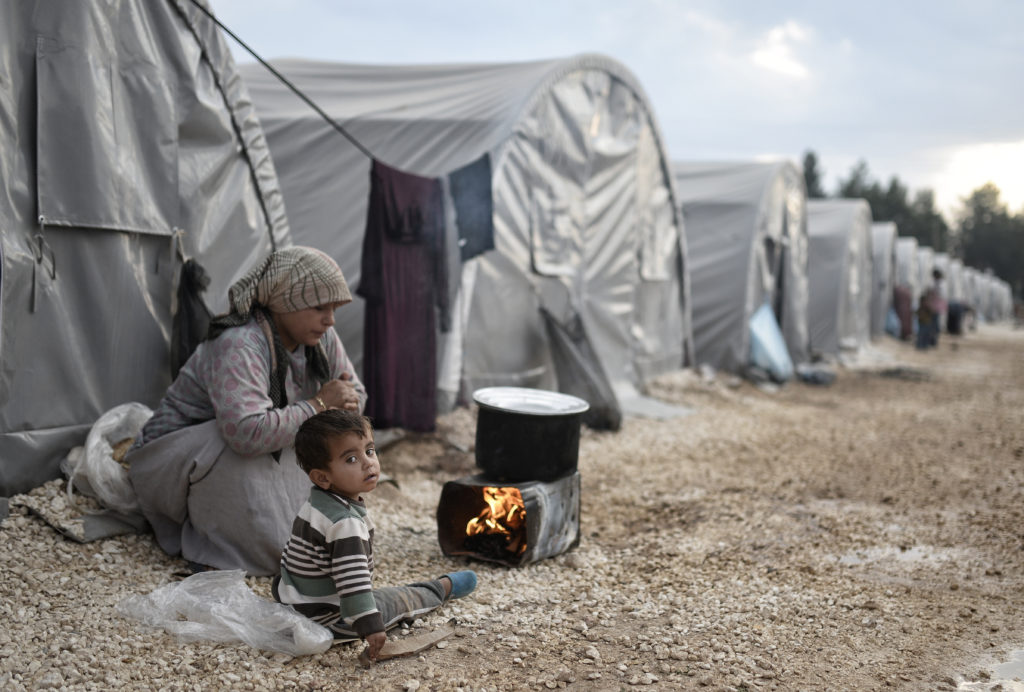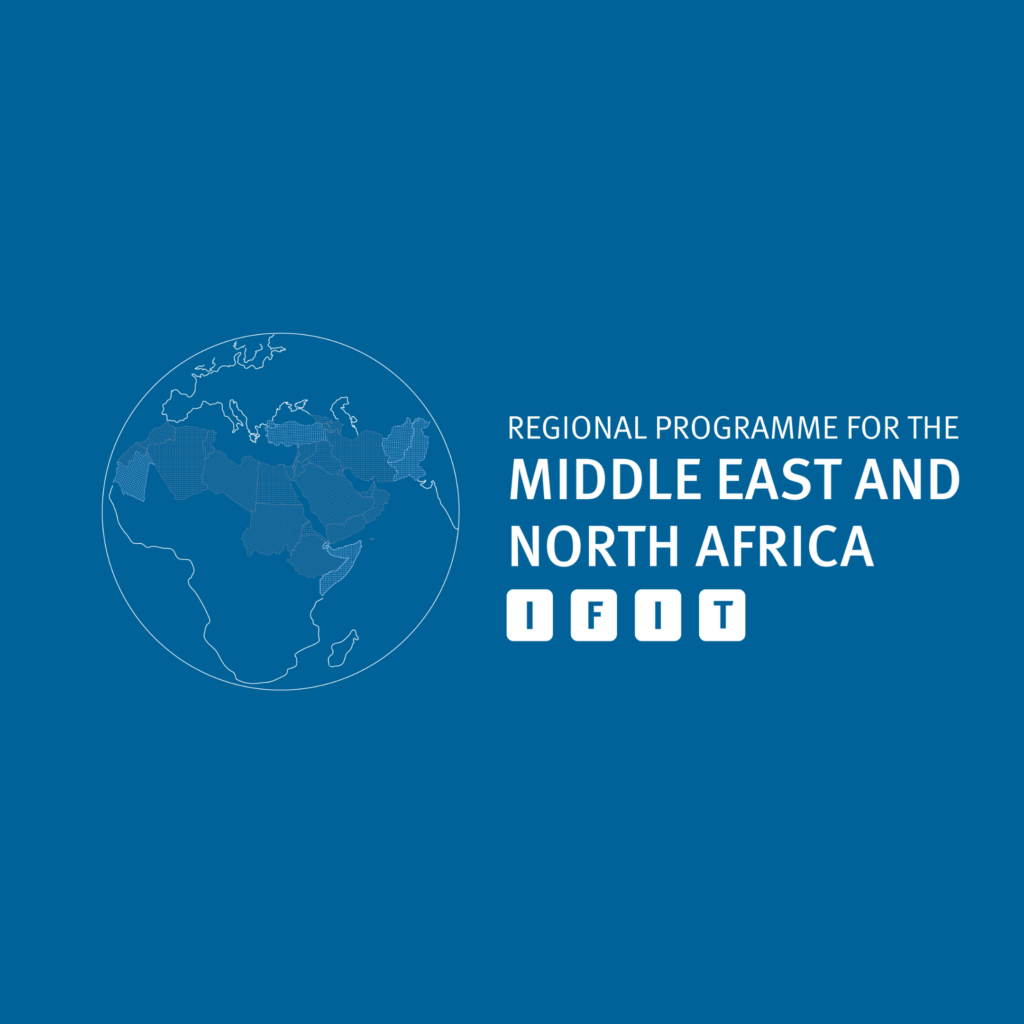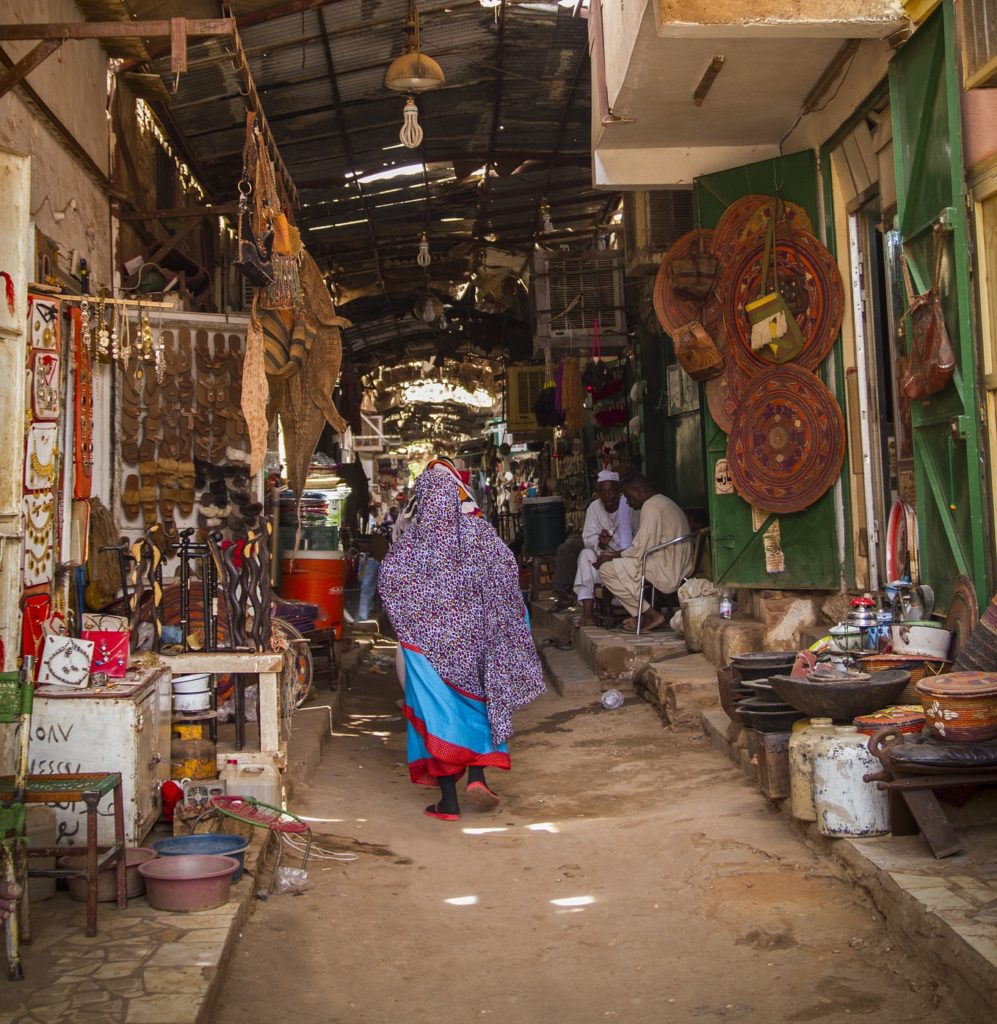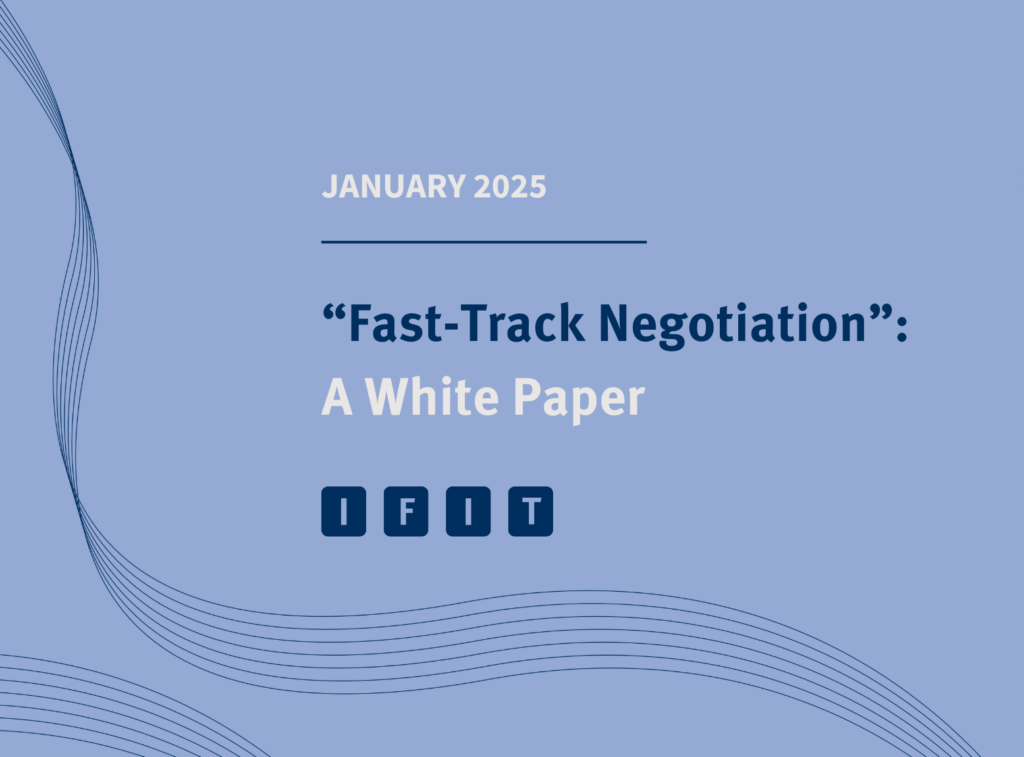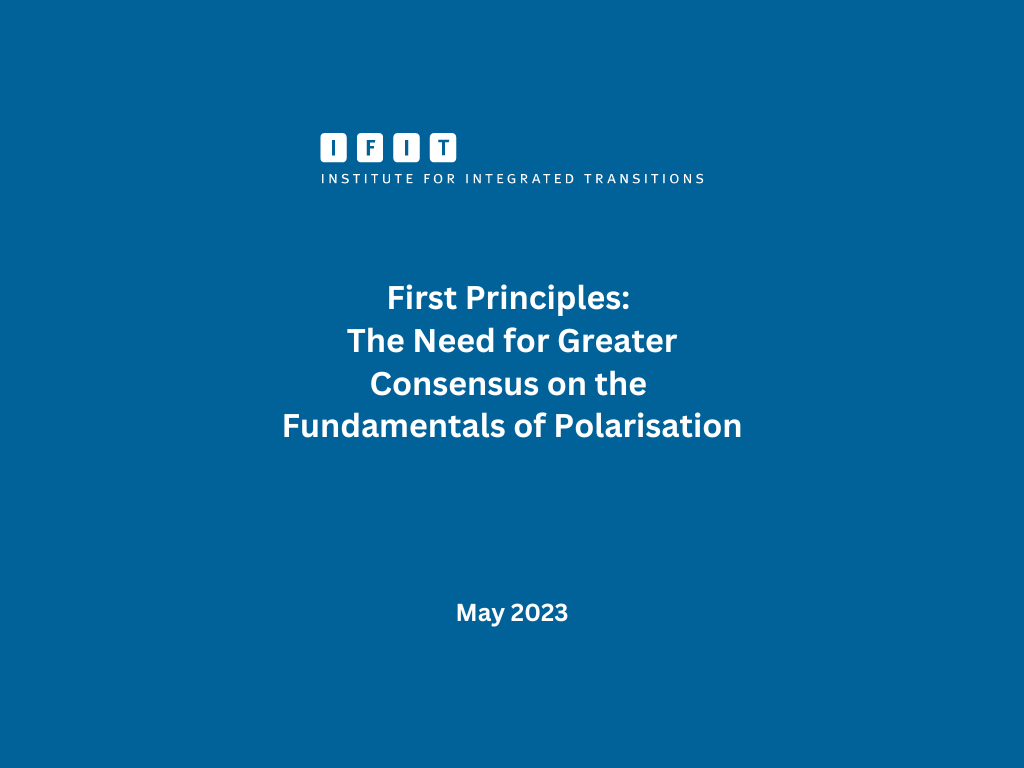As we look ahead to 2026, our focus more than ever will be on innovation. Among other things, we will be:
🔸 Working with Kenya to advance the first-ever global treaty on conflict mediation;
🔸 Building a global field of depolarisation;
🔸 Piloting our fast-track negotiation model and integrating AI tools in the process;
🔸 Partnering with the African Union and Court on a high-level continental event; and
🔸 Testing new dialogue models in countries where we have long operated local “brain trusts” – from Nigeria to Syria to Venezuela.
We invite you to watch our 90-second video on IFIT in 2026 to learn more.
You may also be interested in
María José Rodríguez González is a Consultant to IFIT’s Mexico project and also contributes to the implementation of IFIT’s global initiative on Fast-Track Negotiation.
She holds a degree in International Relations from El Colegio de México and is an associate at the Mexican Council on International Affairs (Comexi) within the Europe Study and Reflection Unit, where she has carried out national and regional analyses on current political trends and developments.
María José’s research focuses on international peace and security, migration and asylum, identity formation and nationalism, and political philosophy.
Working languages: English and Spanish.
You may also be interested in
Mariana Cárdenas Millán is an Intern at the Institute for Integrated Transitions (IFIT), based in the Bogotá office, where she supports diverse IFIT research, analysis, and project activities in Colombia.
Before joining IFIT, she took part in student consulting projects, contributed to undergraduate research on economics and public policy, and engaged in international debate platforms and youth-focused initiatives.
Mariana is completing a degree in Economics at the Universidad de los Andes, with additional studies in business law, social psychology, and journalism. Her interests include behavioral economics, macroeconomic dynamics, financial regulation, and the psychological and social factors shaping economic decision-making.
Working languages: English and Spanish.
You may also be interested in
Polarisation has become a defining and disruptive feature of Sudan’s political and social landscape. Rooted in decades of exclusionary governance and identity-based divides, and intensified by the war that began in April 2023, it now shapes daily life, undermines trust, and complicates prospects for peace.
Drawing on a perception survey carried out by IFIT’s Sudan Brain Trust and supported by Northeastern University’s Civic A.I. Lab, this report offers a glimpse at how polarisation has come to penetrate ordinary life in Sudan, while also highlighting some pathways out. The insights from the survey will now inform planned new phases of IFIT work in Sudan, including 1) focus group discussions with diverse communities in Sudan to validate and contextualise the initial findings and 2) the creation of a Sudan-specific depolarisation toolkit.
The DOI registration ID for this publication is: https://doi.org/10.5281/zenodo.17733286
You may also be interested in
Pablo Javier Martínez Acevedo is an intern at the Institute for Integrated Transitions (IFIT). He is based in the Bogotá office, where he supports IFIT’s work in Colombia.
Before joining IFIT, Pablo conducted university research on human rights and their relationship with AI tools in a research group, and he is currently working on criminal policy issues at the School of Criminal Research and Thought at the Universidad Nacional de Colombia. He has also worked at Colombia’s Special Jurisdiction for Peace, participating in fact checking and the processing of voluntary confessions.
Pablo is a law student in his final year at the National University of Colombia. His areas of interest include transitional justice, criminal law policy, human rights, and the law of new technologies.
Working languages: English and Spanish.
You may also be interested in
IFIT’s Founder and Executive Director Mark Freeman joined Prof. (Dr.) Jyoti M.Pathania, Founder and Editor of the Online Indian Journal of Peace and Conflict Resolution, in the latest episode of the podcast “Indian Conflict Resolution”.
They discussed the mismatch of the predominant model of conflict resolution to the conflict landscape of today, and reflected on the promise of IFIT’s pioneering fast-track negotiation model.
You may also be interested in
Narratives about ethnicity have shaped Kenya’s political and social landscape since the colonial period, often incentivising violence and destabilising democracy. This 40-minute video focuses on the roots and consequences of the simplified narratives entrenching ethnic divisions in the country, particularly between the Luo and Kikuyu communities. It offers practical recommendations for transforming these narratives to foster depolarisation and democratic resilience.
The video brings into conversation four IFIT experts and partners with decades of experience working towards peace in Kenya, including within national institutions designed to address past harms, ongoing polarisation and barriers to cohesion: Josiah Musili, Director of the Kenyan Directorate of National Cohesion and Values; Tecla Wanjala, CEO of the Shalom Centre for Counselling and Development and member of IFIT’s Law and Peace Practice Group; Samuel Kobia, Chairman of the Kenyan National Cohesion and Integration Commission and member of IFIT’s International Advisory Council; and Sellah King’oro, Advocate of the High Court of Kenya and member of IFIT’s Inclusive Narratives Practice Group.
Dr. King’oro uses as a starting point our recent research publication, which she authored with Solon Simmons in collaboration with the Directorate of National Cohesion and Values. She outlines three ‘us versus them’ narratives shaping Luo–Kikuyu relations and analyses their implications for broader dynamics in Kenya. Noting that efforts to impose a unifying narrative have not been effective, she recommends a narrative peacebuilding approach based on understanding the historical events, collective traumas and structural issues underpinning these narratives, as well as tailored engagements that reshape the narratives from within in a way that facilitates peaceful engagement.
Mr. Musili adds that divisive narratives at the local and national levels in Kenya are based on ethnic stereotypes that can fuel direct and indirect conflict, particularly during election periods. Noting that government agencies, including the Directorate of National Cohesion and Values, have set up early warning systems to identify threats and prevent violence before it occurs, he further recommends a set of narrative peacebuilding strategies for reducing polarisation. In addition to ensuring community participation, these strategies include conducting narrative assessments to map and understand divisive narratives; building a critical mass of stakeholders with narrative transformation skills; and adopting government policies that explicitly address the grievances behind divisive narratives.
Dr. Wanjala describes the Truth, Justice and Reconciliation Commission’s efforts to investigate historical injustices and rights abuses committed from independence in 1963 to the signing of the post-election violence peace agreement in 2008. These included gathering testimonies and organising hearings for affected communities, including both victims and perpetrators, to share their stories about what occurred. She notes that truth commissions would benefit from conducting narrative assessments and incorporating narrative peacebuilding into their work, while recommending community-based dialogues infused with narrative tools as a key way to elicit shared strategies for addressing injustices and promoting trauma healing.
Rev. Dr. Kobia reflects that narratives around ethnicity have been weaponised in Kenya. He describes the National Cohesion and Integration Commission’s efforts to address divisive narratives, including by monitoring social media and vernacular radio stations for inflammatory content; engaging with influencers and especially artists to promote responsible messaging; working with law enforcement to investigate and prosecute hate speech; and investing in civic and peace education. Noting that narrative polarisation can lead citizens to disengage from political discourse and experience disenfranchisement – in addition to being used to incentivise violence – he highlights the importance of young people, with the critical thinking they bring to issues, to transforming conflict into collaboration. He stresses that narrative transformation is not a side project, but rather central to cohesion, democracy and peace.
Dr Nafees Hamid is a cognitive scientist of political violence, social fragmentation, and cohesion at King’s College London. He conducts psychology, neuroscience, and anthropological research with jihadists, white nationalists, conspiracists, and armed group members, as well as civilians.
He was one of the lead researchers on the first-ever brain imaging studies of jihadist supporters. He is the Co-PI/Research & Policy Director of the FCDO-funded XCEPT research programme at King’s College London, which looks at the role of trauma and mental health in pathways to peace versus violence in fragile and conflict affected states. The research he has conducted and directed has covered the US, Western Europe, the Balkans, Turkey, Syria, Lebanon, Iraq, Morocco, South Sudan, and Colombia. He has advised many NGOs, inter-governmental organisations, and governments including on the national strategies for the rehabilitation of and reintegration of foreign fighters in Tunisia and Kosovo.
He has advised and briefed on CVE policies to many organisations including the US State and Defense Departments, the UK Foreign Commonwealth and Development office, UK Home Office, UN Office of Counter-Terrorism, the Global Coalition, and the French Prime Minister’s office.
You may also be interested in
This discussion paper explores the relationship between collective trauma and narrative in post-conflict and divided societies. Drawing on emerging insights from psychology, peacebuilding and narrative practice, it argues that traumatic experiences are not only individually held but also collectively transmitted through group stories, cultural symbols and social memory.
While these narratives help communities make sense of harm, they may also entrench rigid identities, polarise intergroup relations, and perpetuate cycles of fear, blame and exclusion. With illustrative examples from Kenya and Bosnia and Herzegovina, the paper shows how narratives can feed cycles of violence, but also have the potential to increase resilience and empathy.
Building on the narrative peacebuilding approach developed by IFIT’s Inclusive Narratives Practice Group, the paper identifies multiple practical strategies that can strengthen the capacity of a society to live with and navigate collective trauma in ways that reduce polarisation and help break cycles of violence.
The DOI registration ID for this publication is: https://doi.org/10.5281/zenodo.17462827.








